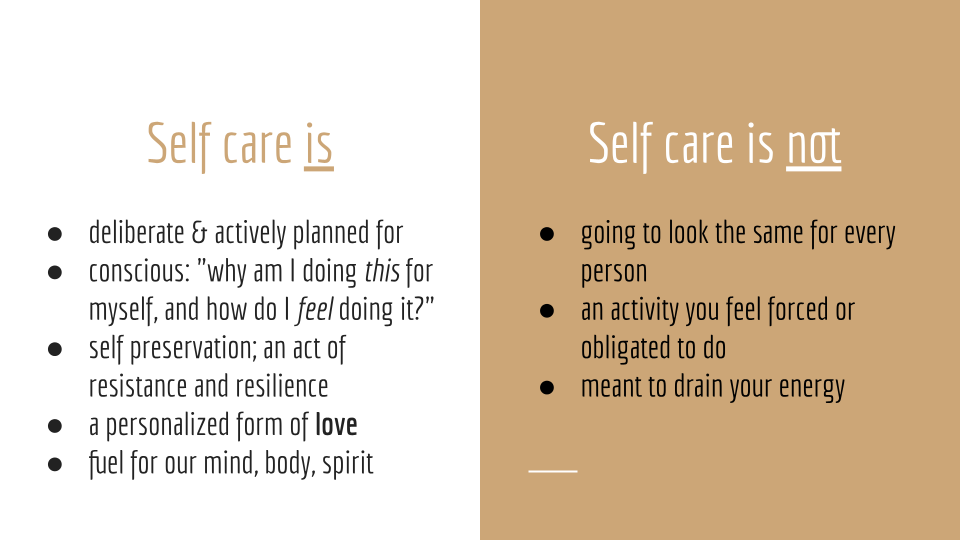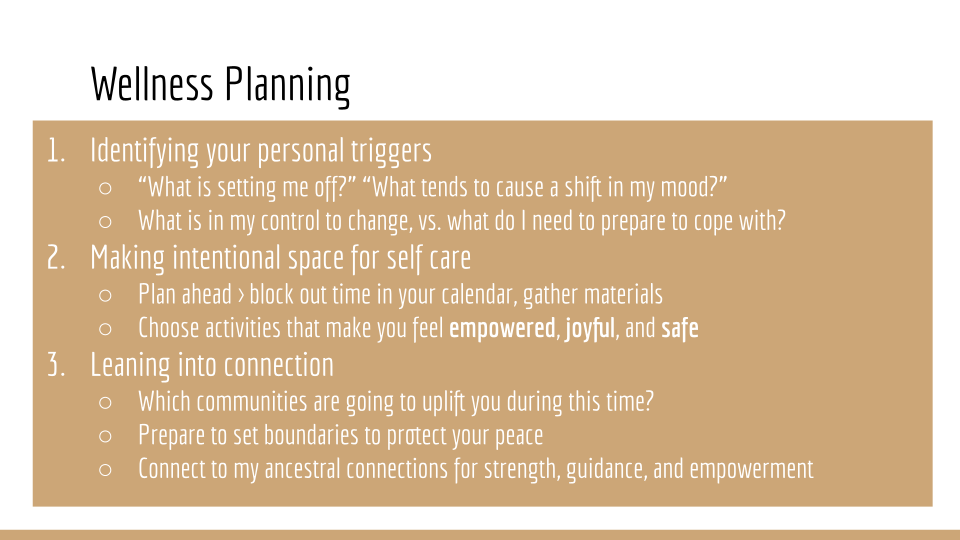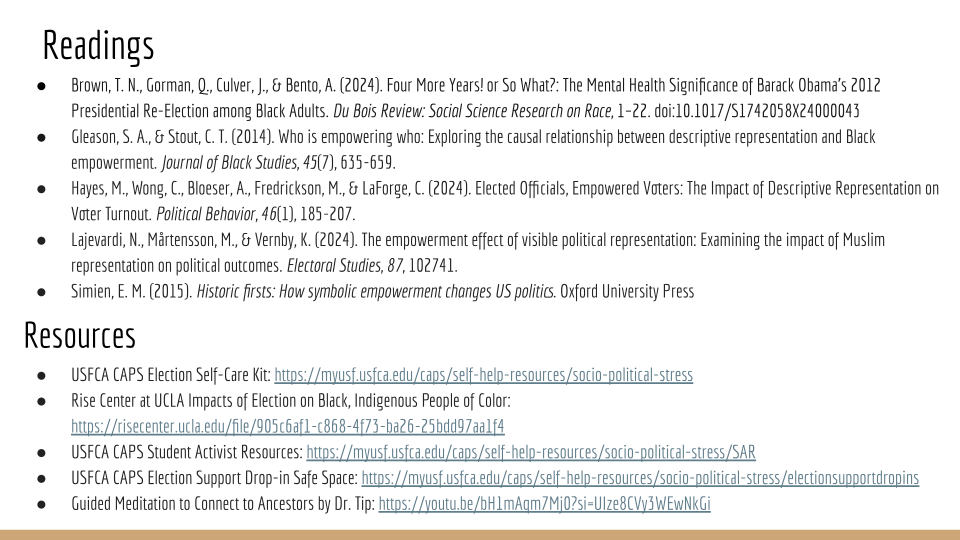Election Self-Care Kit
It has been proven that listening to music can provide a positive affect in reducing stress hormones, anxiety, and lowering blood pressure.
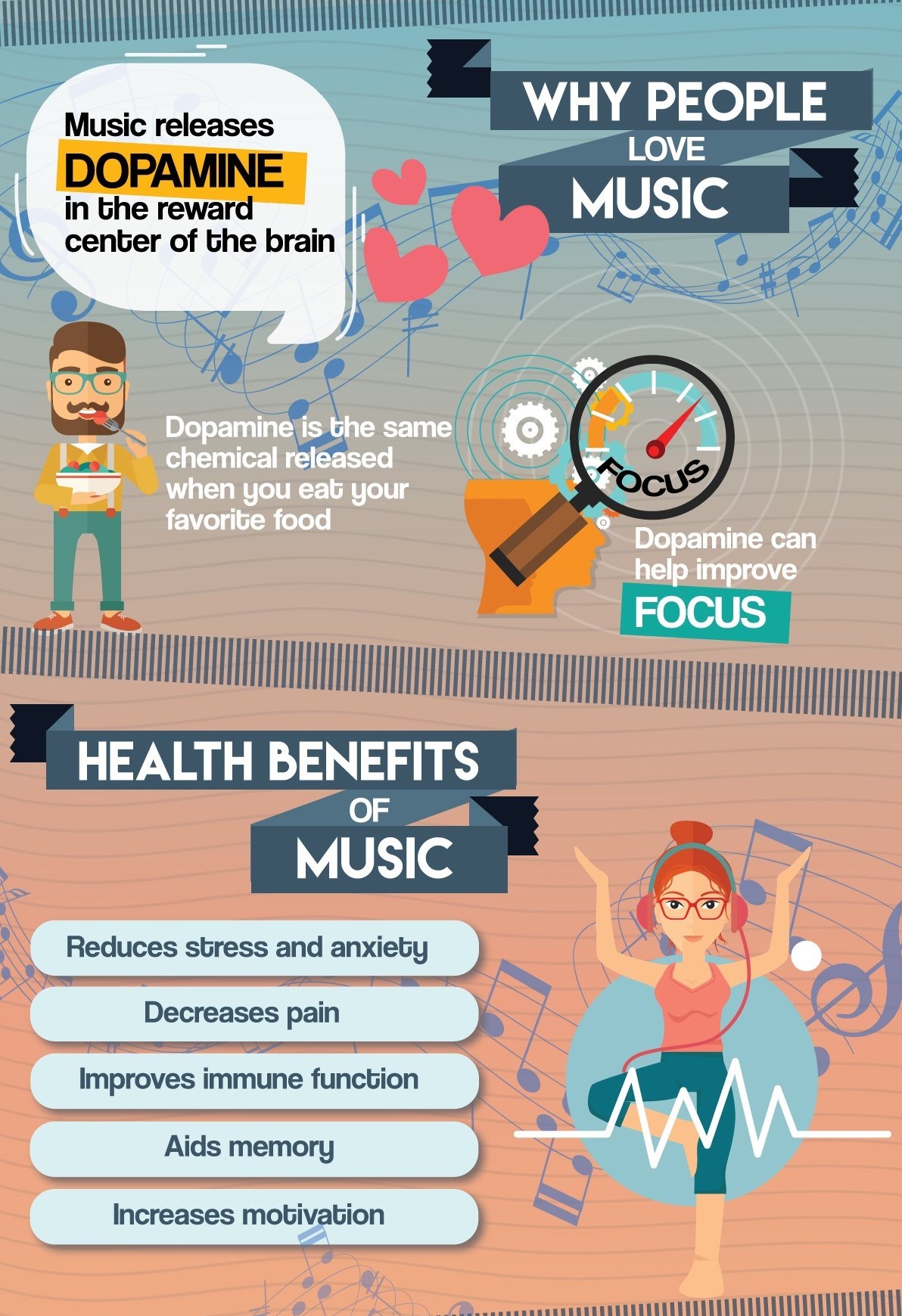

Image Courtesy of WebFX
Adapted from PsychCentral
- Stick to neutral topics
- Pop culture, sports, and shared experiences like weather, food, etc. are a good way to go when it comes to making conversation.
- Don’t take the bait
- Someone will try to bring up the topic, but you don’t have to engage. Find another conversation that you can be a part of.
- Steer the conversation
- Talk about your favorite TV show, cat videos, food - absolutely anything you’re comfortable talking about!
- Admit when you’ve put your foot in your mouth
- Showing a return to self awareness is a good way to regain trust. Moments like that are opportunities to build bridges.
- If politics do come up, be prepared
- Bring the facts. Even when you disagree, respect others. Know where the line is, but also be prepared to be challenged or rebutted. Keep a respectful and civil tone if at all possible.
Adapted from UHCL The Signal
- It's inevitable. You know the people that have strong voices (opinions) on your social platforms. Take steps early to unfollow or mute them. If you don't have close relationships with them, de-friending them is always an option. Remember, they don't get notified that you made these changes. So de-stress yourself and remove these discussions and disturbing posts before they hit your feeds. Unfollow and mute (blocking and unfriending) can be your friendly tools throughout the election season. Use them generously.
- Budget your time online. According to research, adults can spend up to 11 hours a day interacting with media. This includes getting their news. Social media sites (including websites) have surpassed print newspapers as a news source for Americans. Can you decipher fake news? Be careful what you spend your time on and don't spread cyber-gossip or information that is potentially false. By limiting the time you spend on social media, you will find the places that keep you well-informed on the topics that most interest you. You may eventually want to engage in conversations if you feel the thread has proven to be civil without hostility. Believe it or not, there are still people out there that can agree to disagree and have really great discussions and healthy debates.
- Breathe. We can't control how people behave online, but we can control how we respond to them. Your online behavior is a reflection of your offline character, so before you let your fingers go flying to respond to a critic's comment, pause. Is it really worth it? Sometimes the best way to discuss politics is offline with friends and family that understand you. While they may not always agree with you, they may be able to give you a worthwhile conversation without it going viral for the delight of potential trolls. To help have better conversations, check out these tips for having dialogue across political disagreement. There are many people that are able to navigate political conversations on social media, it's truly an art. However for the rest of us, you need to be prepared for the backlash of haters. We're never going to please everyone and we don't have to. We also need to be self-aware of what we put into the cyber-world. Are you about to risk your job? Maybe a potential scholarship? Is a strong opinion or proving a point really worth this type of loss? Don't allow politics to get the better of your online reputation. It's your future.
Adapted from Psychology Today
Rewatching your favorite show or Movie can provide great comfort during a time of uncertainty and unrest. Rewatching a show or movie that you had previously watched previously gives you the sense that you are ”home”. Often settling in to watch a new show or movie can use a lot of energy but watching an old favorite allows us to relax and decompress.
Interacting with pets can help relieve stress and bring down the stress hormone cortisol. When we are stressed it can be associated with an accelerated heart rate and blood pressure. When we are around pets and are petting them it helps to promote relaxation and also helps these stress symptoms.
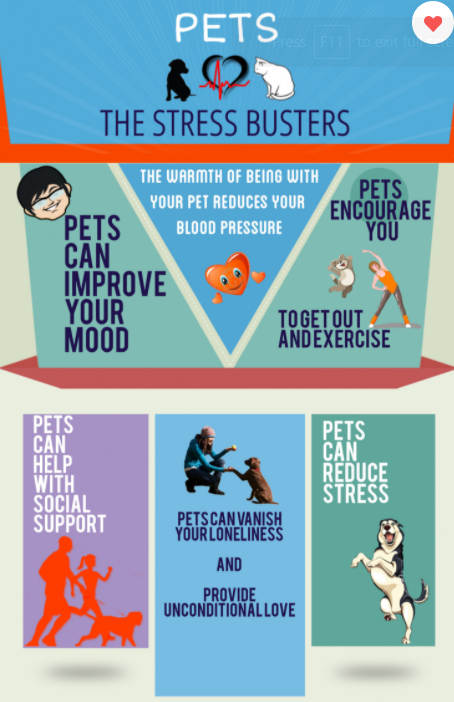
Photo Courtesy of Visually
On average it is suggested that adults get about 7 to 9 hours of sleep per night to maintain their physical and mental health in addition to their overall well-being. Here are some things to help promote restful and productive sleep:
-
Limit screen exposure: Blue light tricks your body into thinking that it is daytime
-
Avoid Caffeine late in the day: Drinking large amounts of caffeine late in the day can affect your sleep quality.
-
Keeping a sleep schedule: Going to sleep and waking up at the same time each day can improve your sleep quality.
-
Exercise on a regular basis: Exercising on a regular basis can help to improve your health as well as your sleep.
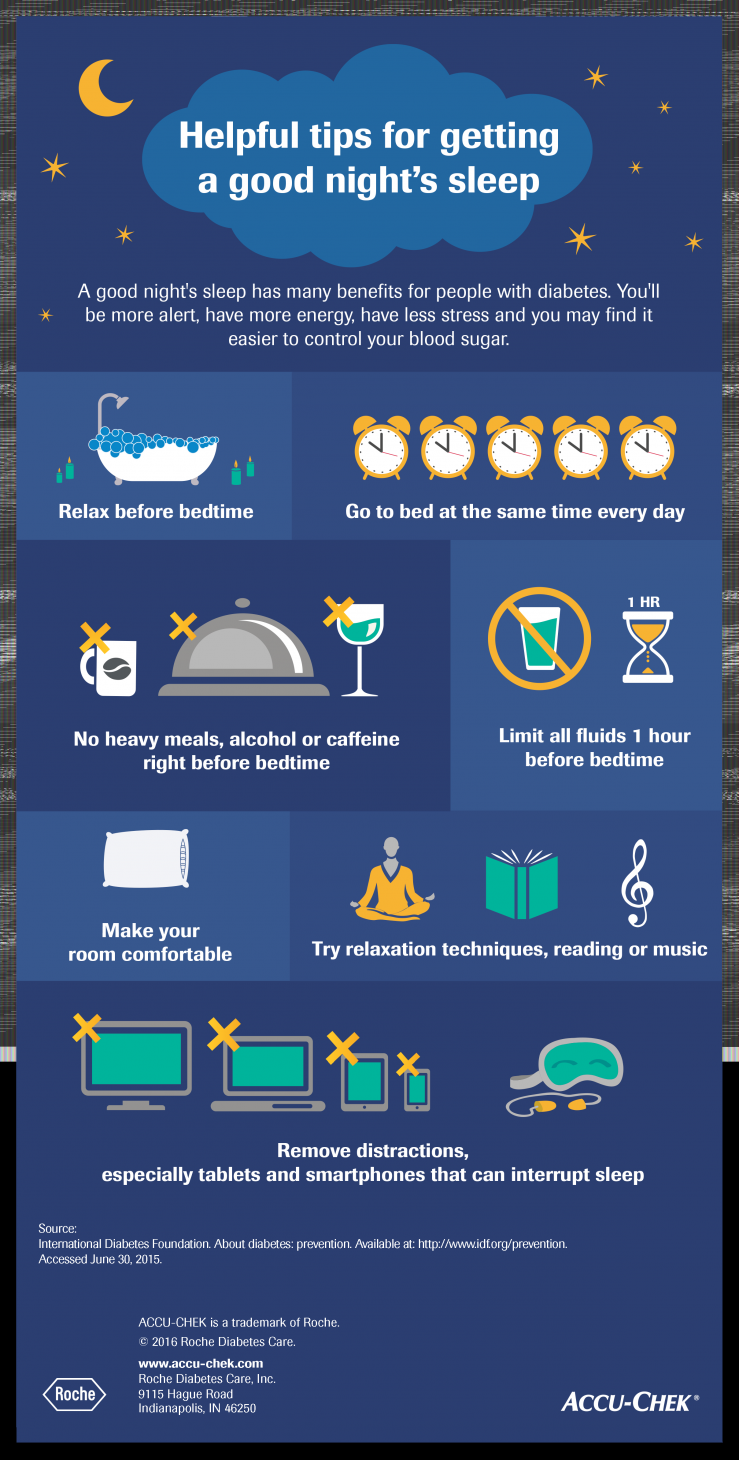
Image Courtesy of: International Diabetes Foundation
It is not uncommon for college students to experience mental health struggles. Counseling and Psychological Services (CAPS) is a great source of support for issues of sadness, anxiety, loneliness, college adjustment, relationship struggles, and other concerns not requiring medical intervention. In addition, CAPS' All Hours can be contacted by calling (855) 531-0761, or students can use the peer-led Crisis Textline by texting HOME to 741741. CAPS is also offering individual and group therapy (both in-person and remote) to students residing within California. (State regulations prevent provision of therapy across state lines.)
Therapy services include Single Session Therapy (SST), brief ongoing therapy, and group therapy. There are no fees for services. Students receiving one-on-one therapy at CAPS may choose to talk either in person or by video or telephone. Please call (415) 422-6352 to schedule an appointment. If you are concerned about a student and would like someone to follow up with them, please contact the Dean of Students Office at (415) 422-5330. If you or someone you know is at immediate risk of harm to self or others, please contact Public Safety at (415) 422-2911 if in San Francisco; if out of state, dial 911 or call the National Suicide Prevention Hotline, dial 988.
National Suicide Prevention Lifeline: Dial 988. Available worldwide in 105 languages.
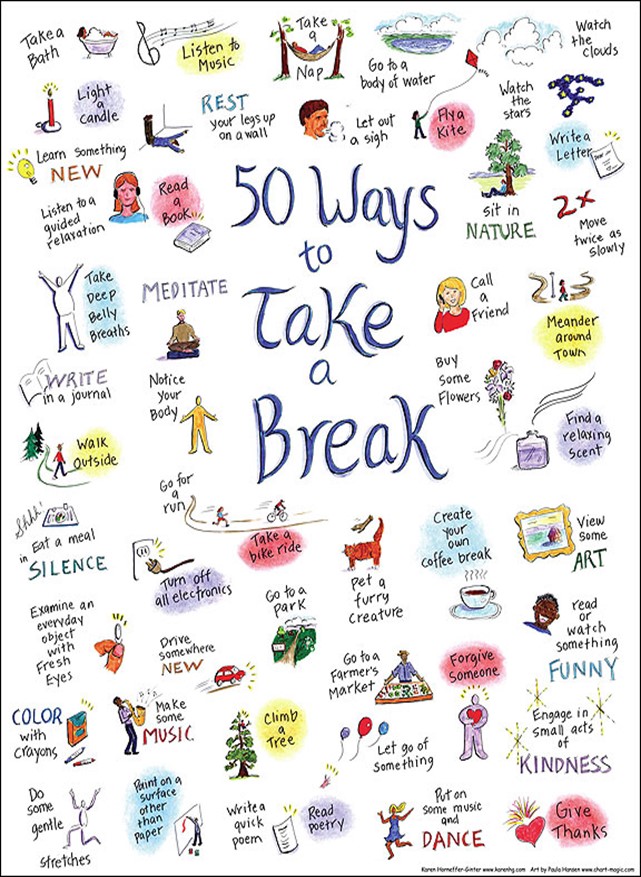
Walking in nature has been proven to yield effective results when it comes to reducing depression and anxiety as it allows us to calm our mind.
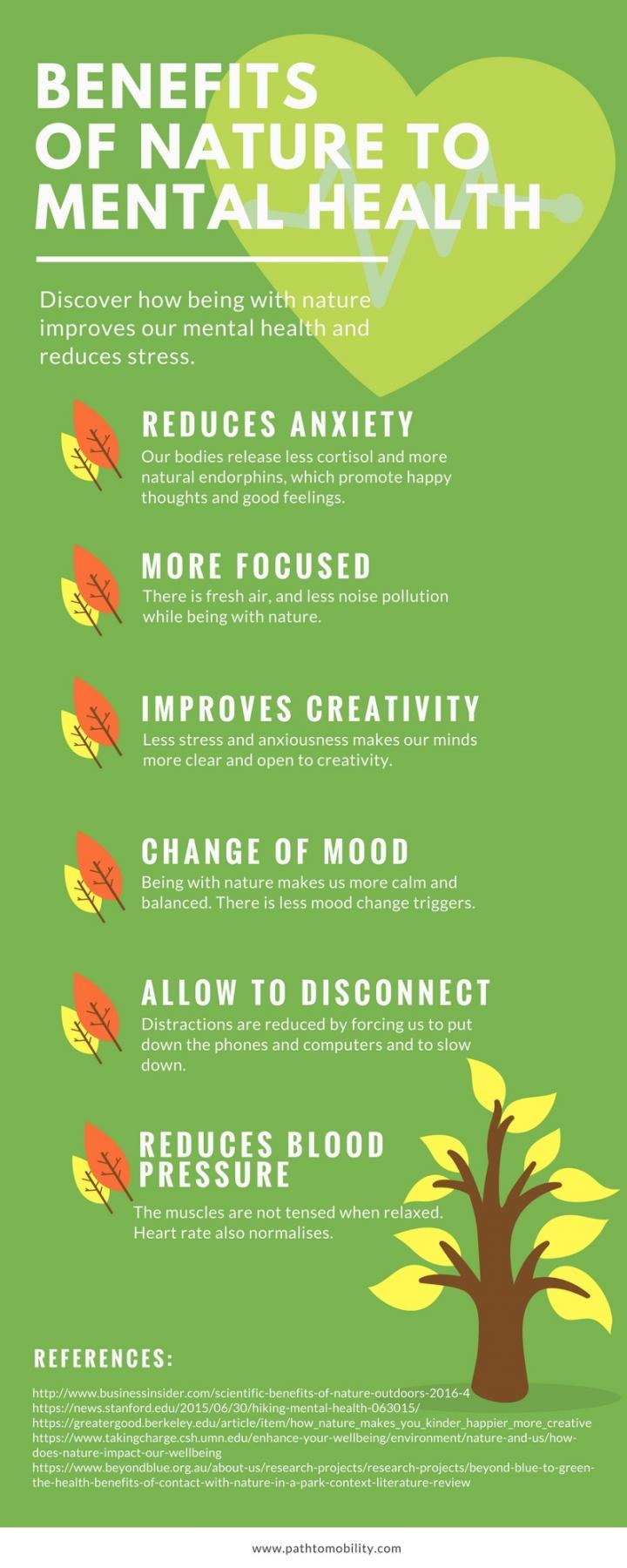
Photo courtesy of Path to Mobility
Election Stress Workshop
- Watch the recording of Staying Grounded During Election Stress: A Coping Tools Workshop from CAPS
Election 2024 Programming, Events, and Dialogue Spaces at USF
- Check out this spreadsheet to stay up-to-date on all of the election-related events and support spaces happening at USF!
Elect AND Protect:
Political Stress on Black Mental Health
Dr. Jevon Rice Senior Staff Psychotherapist
Briahna Jackson Advanced Practicum Psychotherapist
More Resources for Coping With Election Stress
- The Leo T. McCarthy Center has an excellent toolkit with resources for discussion, opportunities for engagement, and more. We especially like the Community Care Post-Election Toolkit
- Eight Questions that Can Help you Survive Election Stress
- 13 Practical Ways Black Women Can Protect Their Mental Health This Election Season
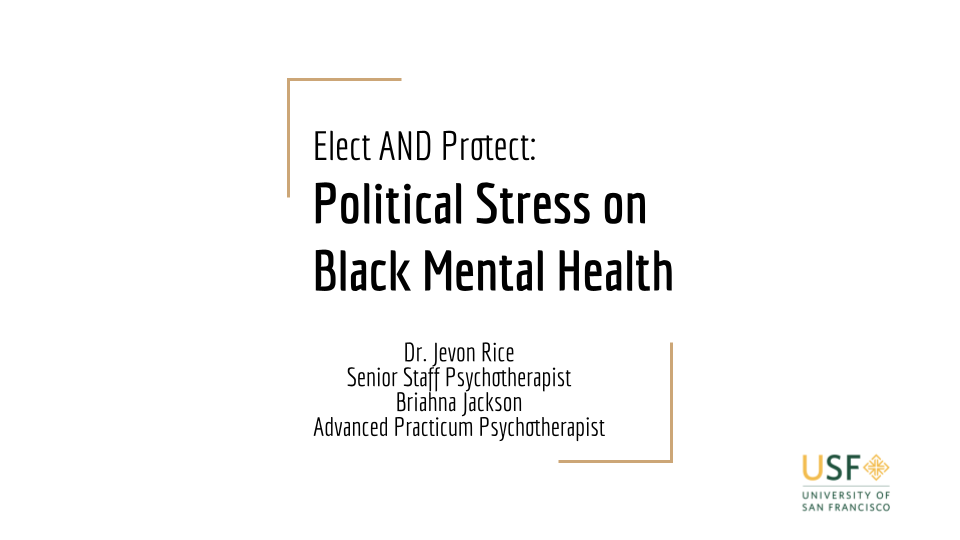
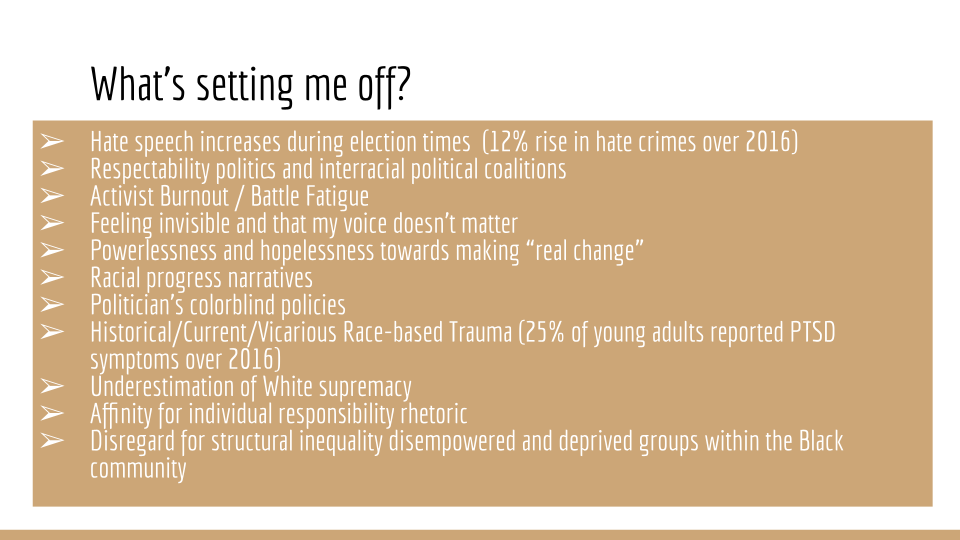
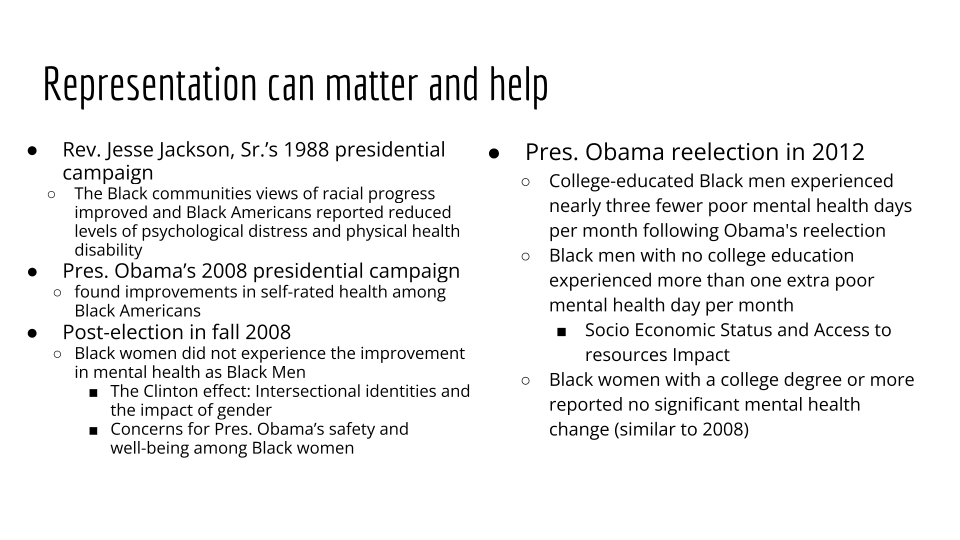
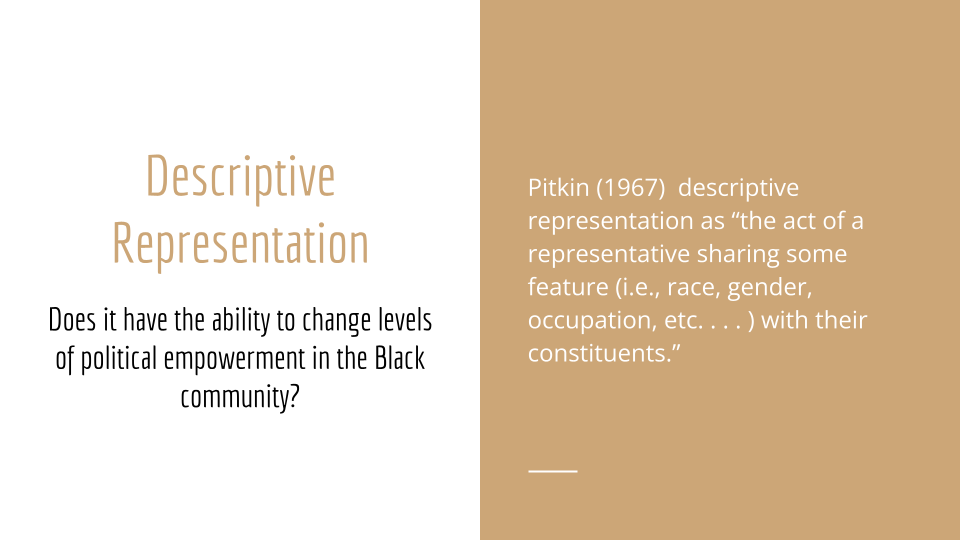

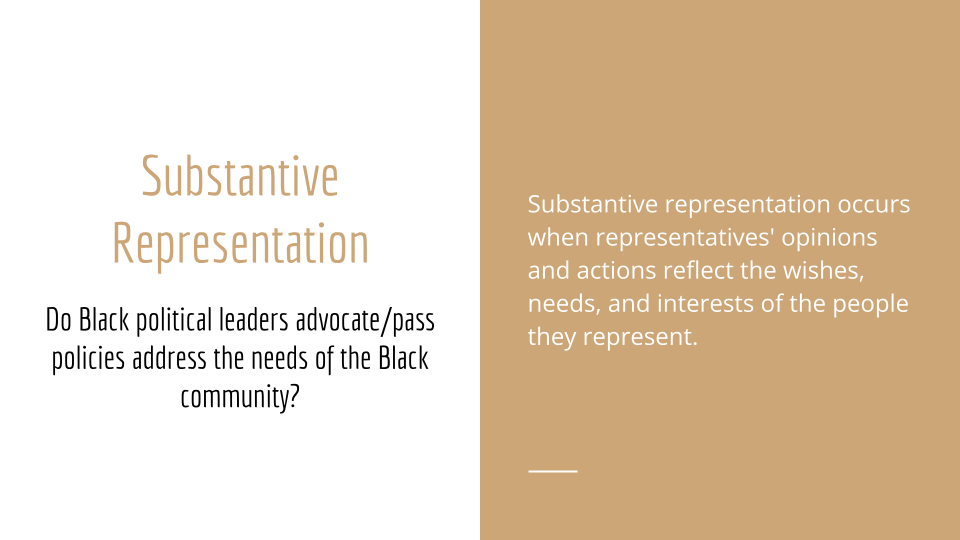
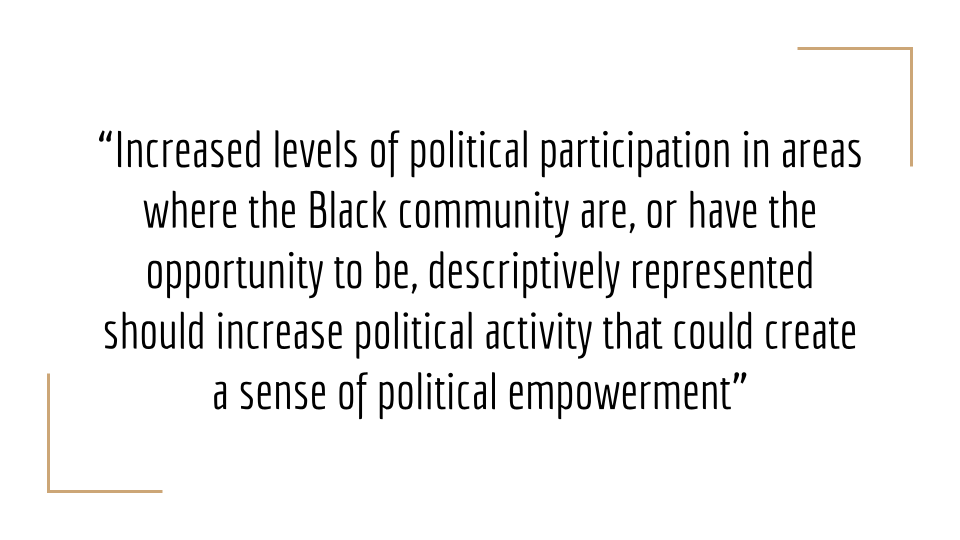
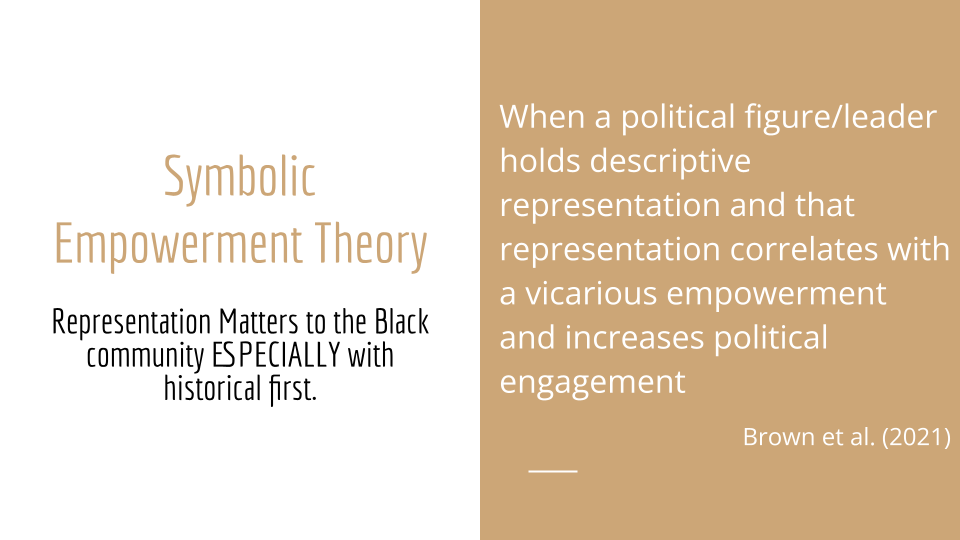
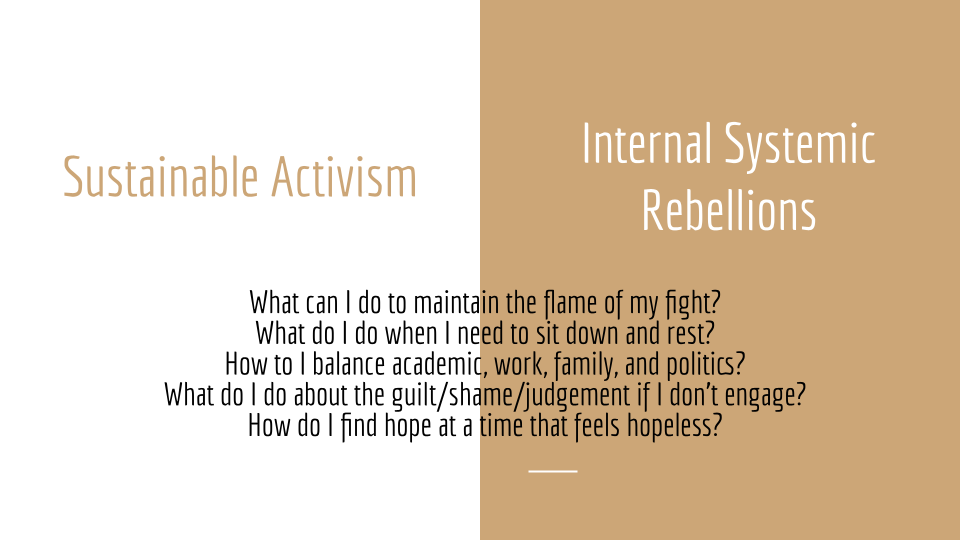
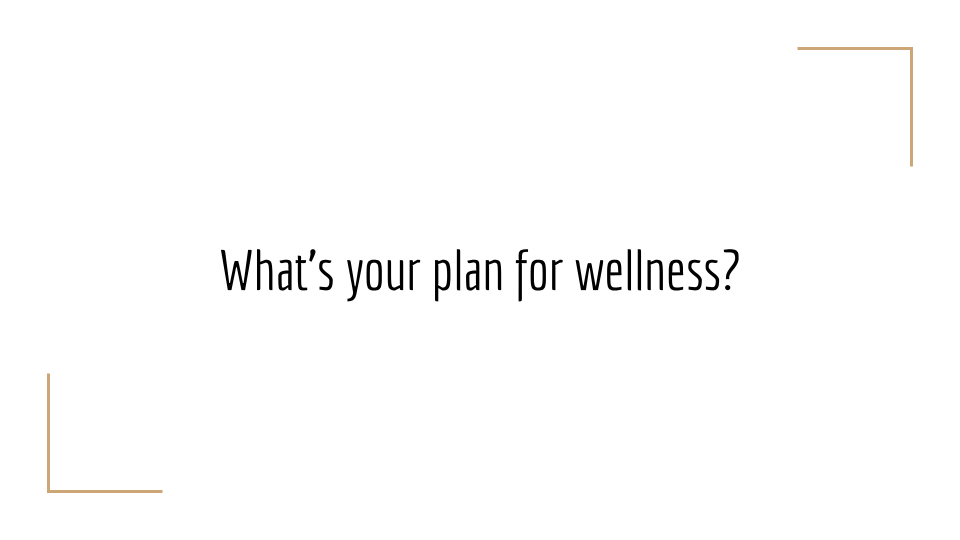
.png)
